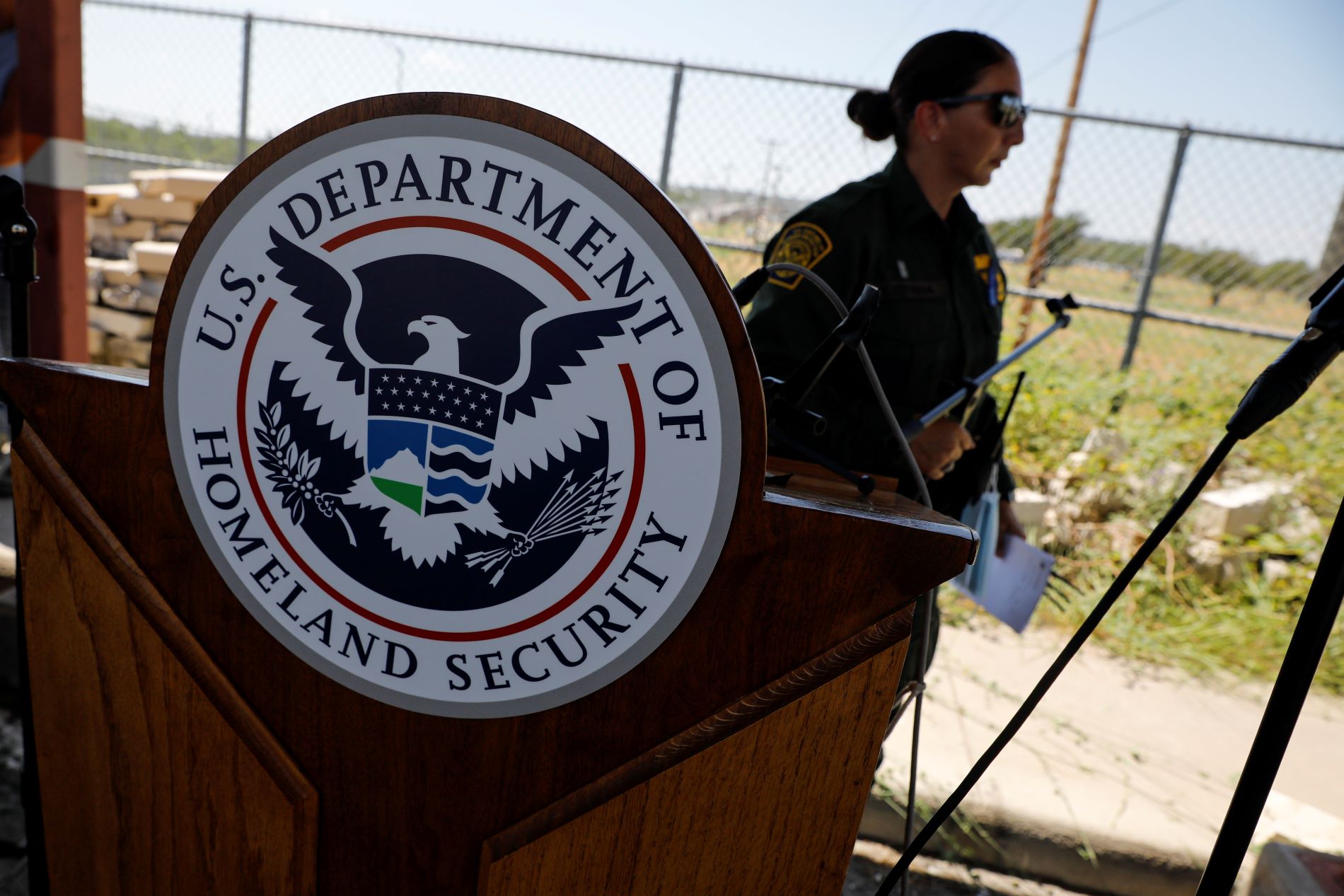
Do you want to learn fascinating facts about Homeland Security? Look no further! In this article, we will explore 20 interesting and eye-opening tidbits about Homeland Security that you may not have known before. Homeland Security plays a crucial role in protecting our nation from various threats, both domestic and international. From its formation after the tragic events of 9/11 to its ongoing efforts to safeguard our borders, infrastructure, and cyber systems, Homeland Security is an integral part of our national security apparatus. Join us as we delve into the world of Homeland Security and uncover some surprising facts that will leave you with a deeper appreciation for the importance of this vital organization.
Key Takeaways:
- Homeland Security was created after 9/11 to protect the US from terrorism, natural disasters, and cyber threats. It works with international partners and employs over 240,000 personnel to keep the nation safe.
- The department safeguards borders, critical infrastructure, and food supply. It also responds to emergencies, combats human trafficking, and provides public alerts. Homeland Security plays a vital role in ensuring the safety and resilience of the nation.
The Department of Homeland Security was created after the 9/11 attacks.
Following the devastating events of September 11, 2001, the Department of Homeland Security was formed to improve national security and protect the United States from future threats.
Homeland Security’s primary mission is to prevent terrorism and enhance security.
The Department of Homeland Security focuses on preventing acts of terrorism, reducing vulnerability to such threats, and responding to and recovering from incidents that do occur.
Homeland Security employs over 240,000 personnel.
With a vast network of agencies and offices, Homeland Security employs a large workforce dedicated to safeguarding the nation and its citizens.
Border security is a crucial aspect of Homeland Security.
Ensuring the integrity of the nation’s borders is a top priority for Homeland Security, which includes patrolling coastlines, ports of entry, and border areas to prevent illegal immigration and smuggling.
Homeland Security is responsible for protecting critical infrastructure.
The department plays a vital role in safeguarding important infrastructure such as power plants, transportation systems, and communication networks from potential threats and attacks.
Homeland Security coordinates emergency response efforts during natural disasters.
In times of natural disasters like hurricanes, floods, and wildfires, the department provides support and coordination to federal, state, and local agencies to ensure an effective response and recovery.
The Federal Emergency Management Agency (FEMA) is part of Homeland Security.
FEMA, an agency under the Department of Homeland Security, assists in disaster response and recovery, providing aid and resources to affected communities.
The Cybersecurity and Infrastructure Security Agency (CISA) is responsible for protecting the nation’s cyber infrastructure.
CISA works to enhance the cybersecurity of critical infrastructure, collaborate with industry partners, and respond to cyber threats that could impact national security.
Homeland Security conducts immigration enforcement activities.
The department is responsible for enforcing immigration laws, including the apprehension and removal of individuals who are in the country illegally or involved in criminal activities.
Transportation Security Administration (TSA) is a component of Homeland Security.
TSA focuses on ensuring the security of the transportation systems, including airports, by screening passengers, baggage, and cargo for potential threats.
Homeland Security works with international partners to enhance global security.
The department collaborates with foreign governments and international organizations to share intelligence, coordinate efforts, and address security challenges on a global scale.
Homeland Security conducts research and development for advanced security technologies.
Through its Science and Technology Directorate, the department invests in research and development to enhance security capabilities, including the development of innovative technologies and solutions.
Homeland Security provides grants to state and local governments for preparedness and response initiatives.
The department allocates funding to support state and local governments in enhancing their capabilities to respond to emergencies and bolster their preparedness efforts.
The United States Coast Guard is a component of Homeland Security.
The Coast Guard, responsible for maritime security, search and rescue operations, and drug interdiction, operates under the Department of Homeland Security during peacetime and falls under the Department of Defense during times of war.
Homeland Security works to prevent and respond to cybersecurity threats.
Protecting critical infrastructure and digital systems from cyber threats is a significant focus for the department, which collaborates with public and private sector partners to enhance cybersecurity capabilities.
Homeland Security conducts intelligence analysis and sharing.
The department analyzes intelligence information to identify potential threats and shares intelligence with other federal agencies to ensure a coordinated response to security challenges.
Homeland Security plays a role in combating human trafficking.
The department works to prevent human trafficking, investigates cases, and collaborates with international partners to dismantle trafficking networks and assist victims.
The National Terrorism Advisory System provides public alerts and notifications.
Homeland Security maintains the National Terrorism Advisory System, which informs the public about potential threats and provides guidance on protective measures.
Homeland Security conducts training and exercises to enhance preparedness.
The department trains personnel and conducts exercises to ensure readiness in responding to various emergencies, including terrorist attacks, natural disasters, and cyber incidents.
Homeland Security plays a role in safeguarding the nation’s food and agriculture.
The department works to prevent the introduction and spread of diseases in livestock, protect the food supply chain, and respond to food-related emergencies.
Conclusion
In conclusion, homeland security plays a vital role in protecting our nation from various threats, including terrorism, natural disasters, and cyber-attacks. It is a complex and multifaceted field that involves the collaboration of various government agencies and departments.By understanding these 20 facts about homeland security, we gain a better perspective on the importance of maintaining a robust and efficient system to safeguard our country and its citizens. From the creation of the Department of Homeland Security to the implementation of state-of-the-art technologies, we can appreciate the ongoing efforts to enhance our security measures.As threats and challenges continue to evolve, homeland security professionals are constantly adapting and developing new strategies to combat these risks effectively. It is crucial for individuals to remain vigilant and support the initiatives aimed at protecting our nation’s security.By staying informed about the work of homeland security and being prepared to report any suspicious activities, we can contribute to the collective effort of maintaining the safety and well-being of our homeland.
FAQs
Q: What is homeland security?
A: Homeland security refers to the efforts and measures taken to protect a country’s borders, infrastructure, and people from threats such as terrorism, natural disasters, and cyber-attacks.
Q: When was the Department of Homeland Security created?
A: The Department of Homeland Security was created on November 25, 2002, in response to the September 11, 2001, terrorist attacks.
Q: What agencies are part of the Department of Homeland Security?
A: The Department of Homeland Security includes agencies such as the Transportation Security Administration (TSA), Federal Emergency Management Agency (FEMA), U.S. Customs and Border Protection (CBP), and U.S. Immigration and Customs Enforcement (ICE), among others.
Q: What role does technology play in homeland security?
A: Technology plays a crucial role in homeland security, aiding in border surveillance, threat detection, information sharing, and emergency response.
Q: How can individuals contribute to homeland security?
A: Individuals can contribute to homeland security by being vigilant, reporting suspicious activities to authorities, following security protocols, and staying informed about potential threats.
Q: How does homeland security prepare for natural disasters?
A: Homeland security agencies work in collaboration with state and local authorities to develop emergency response plans, conduct drills and exercises, provide resources and support during disasters, and facilitate recovery efforts.
Q: What is the significance of intelligence analysis in homeland security?
A: Intelligence analysis helps identify potential threats, assess risks, and inform decision-making processes, enabling homeland security agencies to take proactive measures to prevent and respond to security incidents.
Q: How does homeland security address cyber threats?
A: Homeland security agencies work to defend against cyber threats by implementing cybersecurity measures, conducting cyber threat assessments, sharing information with public and private sector partners, and promoting cybersecurity awareness and education.
Homeland Security's role in protecting the nation is multifaceted and ever-evolving. From border security to cybersecurity, dedicated professionals work tirelessly to keep Americans safe. Learning about the history and responsibilities of this critical department can be both informative and engaging. For those interested in delving deeper into the world of Homeland Security, exploring the leadership behind the organization can provide valuable insights. Janet Napolitano, former Secretary of Homeland Security, has a fascinating background and made significant contributions during her tenure.
Was this page helpful?
Our commitment to delivering trustworthy and engaging content is at the heart of what we do. Each fact on our site is contributed by real users like you, bringing a wealth of diverse insights and information. To ensure the highest standards of accuracy and reliability, our dedicated editors meticulously review each submission. This process guarantees that the facts we share are not only fascinating but also credible. Trust in our commitment to quality and authenticity as you explore and learn with us.


